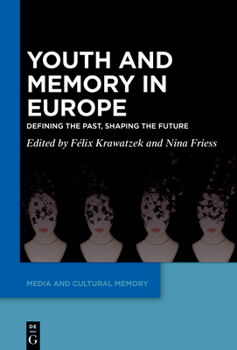Youth and Memory in Europe: Defining the Past, Shaping the Future
This volume contends that young individuals across Europe relate to their country's history in complex and often ambivalent ways. It pays attention to how both formal education and broader culture communicate ideas about the past, and how young people respond to these ideas. The studies collected in this volume show that such ideas about the past are central to the formation of the group identities of nations, social movements, or religious groups...
Format:Hardcover
Language:English
ISBN:3110738309
ISBN13:9783110738308
Release Date:June 2022
Publisher:de Gruyter
Length:405 Pages
Weight:1.65 lbs.
Dimensions:1.1" x 6.0" x 9.1"
Customer Reviews
0 rating





